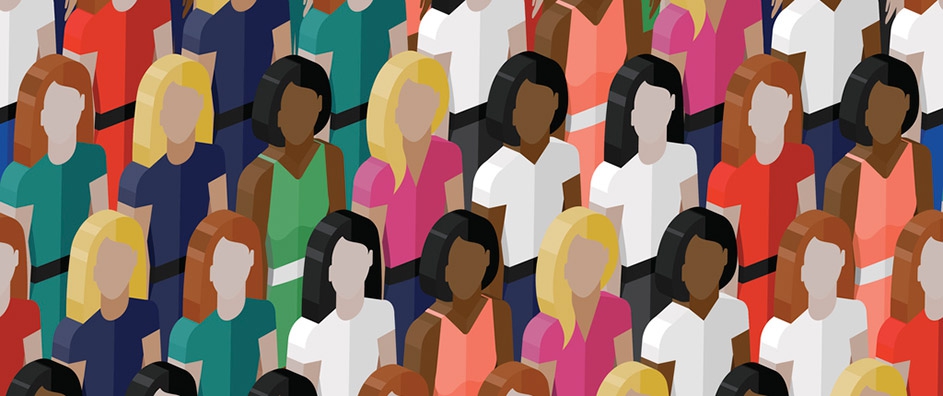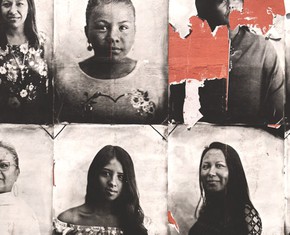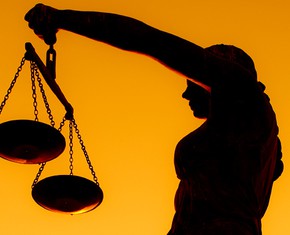The views expressed in our content reflect individual perspectives and do not represent the authoritative views of the Baha'i Faith.
Two years ago, in my Feminist Legal Theory class, I realized that some of my fellow feminists considered my concept of feminism controversial and even offensive.
Up until then, I had taken for granted the notion that women and girls would want as many allies as possible in advocating for women’s rights. Surely, in order to achieve economic, social, political, and cultural equality with men, we would welcome the help of our feminist husbands, fathers, sons, boyfriends, male friends, and male colleagues… or so I thought.
A few of my female classmates expressed an alternate view, one rooted in distrust and perhaps, resentment, toward male feminists. “Why should women grant their oppressors a spot at the table?” they said. “Who’s to say that these so-called male ‘feminists’ won’t steer our efforts into serving their own patriarchal agenda? If we grant men the power to fight for women’s rights, aren’t we doing precisely what the patriarchy wants us to do – disempowering ourselves by handing men the opportunity to decide our destinies?”

Immediately, the few males in the class fell completely silent – males who on several occasions expressed feminist views had now stopped contributing to the dialogue on advancing women’s rights because they were made to feel that they had no right to contribute. This realization dampened my initial enthusiasm at the male participation in the class. It dawned on me that no matter how hard I work to encourage my male friends and associates to shed their apathy and become active supporters of women’s rights, some women seek to isolate males from the feminist movement.
I find this cynical view of male feminists disturbing. Undoubtedly, many males, whether deliberately or subconsciously, favor the patriarchal system we live in and promote it and their attendant privilege through even the subtlest words and actions. However, I am confident that there are men out there who genuinely believe in advancing women’s rights – men who would be true advocates for women if they knew how to meaningfully support women, and if they felt that their support was welcome.
While not every man will be inclined or well-suited to advancing women’s rights in a courtroom, at a protest, or on the legislative floor, every man can change his speech about and demeanor toward women in the workplace, at home, in front of children, women, and especially, other males. At a minimum, men can play a vital role in dismantling stereotypes of how men, women, boys, and girls “should” act, and what they “should” do, like, and dislike. So long as those stereotypes persist, women and men will always be defined by reference to the other. So long as men are seen as tough, women will be seen as submissive. So long as males are seen as the provider, they will feel (or be expected to feel) emasculated when their wives or girlfriends outperform them professionally.
I am a staunch feminist, immovable in my belief that women are entitled to, and should be granted, equal rights and opportunities as men in all aspects of civic and private life. But I will also readily acknowledge that some of the rhetoric that isolates males from the feminist movement, and even descends into man-hating, gets us nowhere.
At the risk of being criticized for pandering to male sensitivities, I call for an end to this isolating and resentful behavior. I hope my fellow feminists will encourage the men and boys in their lives to recognize the important role they can and must play as allies in the movement for women’s rights, by treating women as equals, elevating their speech about women, refusing to objectify women, refusing to take credit for women’s achievements, and by raising children who know a woman’s worth. While changes at the institutional level are essential for advancing women’s rights, so are changes in the hearts and minds of our men.
As a Baha’i and as a feminist, the Baha’i teachings give me hope that we can reach these social and spiritual goals when we collectively realize that:
The world of humanity is possessed of two wings: the male and the female. So long as these two wings are not equivalent in strength, the bird will not fly. Until womankind reaches the same degree as man, until she enjoys the same arena of activity, extraordinary attainment for humanity will not be realized; humanity cannot wing its way to heights of real attainment. When the two wings… become equivalent in strength, enjoying the same prerogatives, the flight of man will be exceedingly lofty and extraordinary. – Abdu’l-Baha, The Promulgation of Universal Peace, p. 375.
You May Also Like
Comments

















No?
‘Abdu’l-Bahá, Paris Talks, 50.14. cited in ‘Two Wings of a Bird’; a statement on the equality of men and women from the National Spiritual Assembly of the Baha’is of the United States